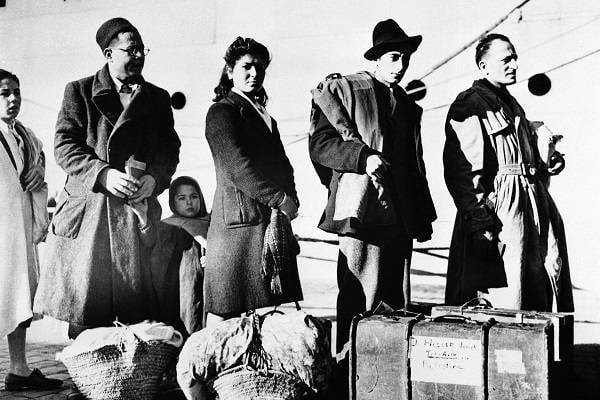There is an initiative for synagogues across the world to say memorial prayers for those killed.
By United With Israel Staff
November 30th has been designated as the Day of Commemoration for Jewish Refugees from Arab Countries and Iran.
In 2014, the Knesset adopted a law that sets this date as an annual, national day of commemoration for the 850,000 Jewish refugees who were displaced from Arab countries and Iran in the 20th century.
“Jews had lived in the Arab lands for thousands of years, and many of their communities preceded the advent of Islam,” says Israel’s Foreign Ministry.
“But in the 20th century, with the rise of Arab nationalism and the conflict in Palestine, the new Arab regimes began a campaign of massive violations of the rights of their Jewish citizens,” the ministry states, adding that “Arab states expropriated property of their native Jews, and denaturalized, expelled, arrested, tortured and murdered many of them.”
The specific date for the commemoration was chosen as the day following the November 29th anniversary of the passage in 1947 of the UN Partition Plan, which recommended the establishment of two separate states, Jewish and Arab, in the territory of British Mandatory Palestine, because “the measures taken by the Arab League and its member states against their Jewish communities began then,” says Ashley Perry, President of Reconectar and Director General of the Knesset Caucus for the Reconnection with the Descendants of Spanish and Portuguese Communities, who was involved in legislating the Knesset bill with then-MK Shimon Ohayon.
This year, the date falls on the Jewish Sabbath, and there is an initiative for synagogues across the world to say memorial prayers, including Kaddish, for those killed during the persecutions and for those whose graves cannot be visited due to the extinction of Jewish communities in these lands.
A prayer was written by Rabbi Joseph Dweck, Senior Rabbi of the Spanish and Portugues Sephardi Community in London.
It decries that “we have seen with pained hearts the murder of our brothers and sisters and the burning of our synagogues and our Torah scrolls by the hands of our Arab neighbors amongst whom we have dwelt for generations and they have banished us from living peacefully in their lands.
“And in our absence, they have destroyed many Jewish graves,” says the prayer.
“You, O Lord, are enthroned forever, Your throne endures through the ages. Take us back, O Lord, to Yourself, And let us come back; Renew our days as of old!” the prayer urges.
“And may God’s promise be fulfilled that a redeemer shall come to Zion, O that the deliverance of Israel might come from Zion!” it adds.
“Last year, at the initiative of an Iraqi Jew living in Montreal, Sass Peress, a mass kaddish was said in 12 synagogues around the world,” says David A. Dangoor, a philanthropist and businessman who grew up in Baghdad and is the Vice President of the World Organization of Jews from Iraq.
“So far, to the best of my knowledge, almost 50 synagogues will be participating this year, the overwhelming majority of which serve communities whose congregants are from the Middle East and North Africa, and now these prayers have been added,” he says.
“We strongly believe that this should become an annual event for all Jewish communities, just as other days are,” states Dangoor.
